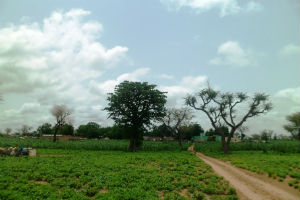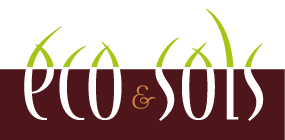 Auto-adaptation of tropical agro-socio-ecosystems to global climate change?
Auto-adaptation of tropical agro-socio-ecosystems to global climate change?
Long-term study of ecological intensification of cereal production on savannah zones of West Africa.
Given the current major demographic and social changes, sub-sahelian Africa will need to intensify its agricultural production and also meet the challenge of responding to climate change and mitigation of greenhouse gas emissions. New practices must be identified. Ecological engineering may meet these aims.
Agricultural system dynamics are driven by a set of complex processes enabling them to adapt to climate and social pressures. The past dynamics are being studied to determine the general laws which govern this capacity to adapt. A knowledge of these laws will help to design promising innovations for the sustainable development of agro-socio-ecosystems.
The main hypothesis is that viable, sustainable agro-socioecosystems must use natural ecosystem functions. Consequently, the concepts developed in ecology and complexity sciences will be used to analyse viable sustainable agro-socioecosystems over the past fifty years to verify their viability and durability. This approach will determine the key rules to follow when applying future agricultural intensification programmes.
Agriculture has enormous potential for growth in Africa. However, it is based main on rain-fed crops, 80% of which are produced by small farmers who are limited to organic inputs as amendments. It is also highly vulnerable to climatic factors. Soil microorganisms play the main role in the mineralization of organic matter and nutrient recycling. They are a huge bank of diversity (106 species of bacteria and fungi) and each species is responsible for at least one stage in the transformation of organic matter. It is, therefore, essential to maintain microbial biodiversity so that the soil can provide the ecosystem services of primary production, nutrient recycling and carbon sequestration.
Aims
The CERAO project sets out to improve cereal production in the semi-arid sub-sahelian regions of West Africe, by identifying the ecological and social processes that control the viability and sustainability of the agro-socioecosystems despite large populations and a harsh climate.
- Describe the agricultural production systems
- Identify the ecological and social determinants of the adaptation or resilience of the agro-socioecosystems
- Work together to find sustainable intensification pathways for cereal production.
The project is being undertaken in the peanut basin of Senegal in three villages with very different agricultural practices which are part of the Niakhar Health and Demographic Surveillance System.
The thesis of Anne Bisson in modeling of dynamic of nitrogen within a sub-Saharan agro-ecosystem contributes to the objectives of CERAO.
A 9 minute old film in collaboration with the Senegalese Institute of Agronomic research ISRA, the mixed laboratory international Iesol and the CIRAD presents the challenges of research to intensify the production of biomass, intensification based on the use of the manures available at the level of the farm and the territory.






